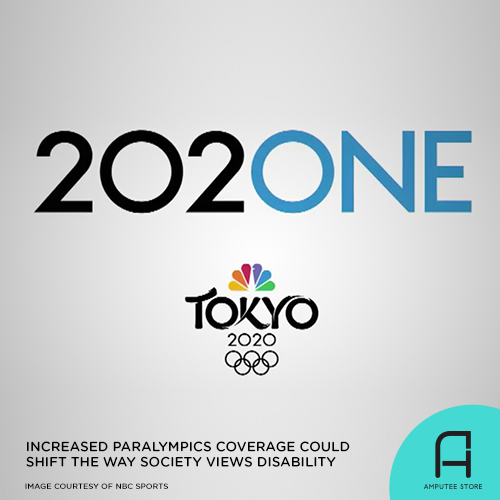Increased Paralympics Coverage Could Shift the Way Society Views Disability
Mainstream media undoubtedly plays a huge part in influencing society's collective views on particular issues. This year, as NBC commits to increasing the coverage of the Tokyo Paralympic Games, it could be a pivotal moment in how society perceives visible disability.

Other countries have been ahead of the curve. More than 4.1 billion people worldwide reportedly tuned in for the Summer Paralympics in Rio, Brazil, back in 2016. Meanwhile, there wasn't much coverage around the Paralympics in the US due mainly to lackluster advertiser commitment and audience trends.
This year's Paralympics is going to change that. NBC will devote its primetime hours to the 2021 Paralympics, which began with a 100-day countdown to the Games on the Today show and NBC Nightly News. The US Paralympic Team Trials have also been getting airtime on the broadcast network. Starting with this year's Paralympics, NBC hopes to unlock the Games' vast audience potential in the US.
But why are broadcast networks only giving this much attention to the Paralympics this year?
The lack of coverage wasn't as much of an issue with audience reception as advertiser support. Although previous iterations of the Paralympics undoubtedly held exceptional story value, only a few advertisers were willing to invest large amounts of money. Mainstream media is, after all, still a business.
While the broadcast network featured stories on previous Games, it wasn't shown during primetime—a time when the majority of people gather to watch. By putting Paralympics coverage in primetime slots, NBC is giving the stories a much broader audience.
This is an exciting development for the millions of people who live with visible disabilities in the US. In an interview with Living with Amplitude, Gary Zenkel, NBC's Olympics president, said that this marks a significant cultural change in how disability is portrayed in the media and perceived in the country. More importantly, by bringing the talents of people with disabilities to the forefront of the collective social psyche, this event may change the way disability is valued.
According to Zenkel, the deciding factors that changed this year's coverage is sponsor demand and a growing interest in the event. What's notable is that these factors precede data that the coverage will garner a massive television audience. In other circumstances, the network typically has to prove to sponsors first that a particular event will generate substantial interest before securing sponsorships.
Zenkel mentioned Toyota, a global Olympic sponsor, as one of the early believers in the Paralympics. NBC has worked side by side with the automotive brand in Rio and, since then, Toyota has created more opportunities for better Paralympics coverage.
This year, Zenkel reported that other brands had expressed their interest in the Paralympics, a phenomenon that Zenkel credits to Toyota's initial support of the 2016 Paralympics.
Besides advertiser support, NBC's parent company, Comcast, is making huge strides in supporting the US Paralympians and Olympians. The company recently renewed its sponsorship of the US Olympic and Paralympic teams through 2028.
In terms of determining the success of the Paralympics coverage, Zenkel said that it would be a combination of television ratings, social media chatter, and discussions. The end goal is to weave inspiring stories of Paralympians into the US social consciousness as a lead-up to 2028, when LA hosts the Paralympics. Being a catalyst for broader acceptance of people with visual disabilities in modern society would be a huge win.
Weaving the inspiring stories of Paralympians into the social consciousness as a lead-up to 2028, when LA will host the Paralympics, would be a huge win.
The Tokyo Paralympic Games is scheduled from August 24 until September 5, 2021.









































































